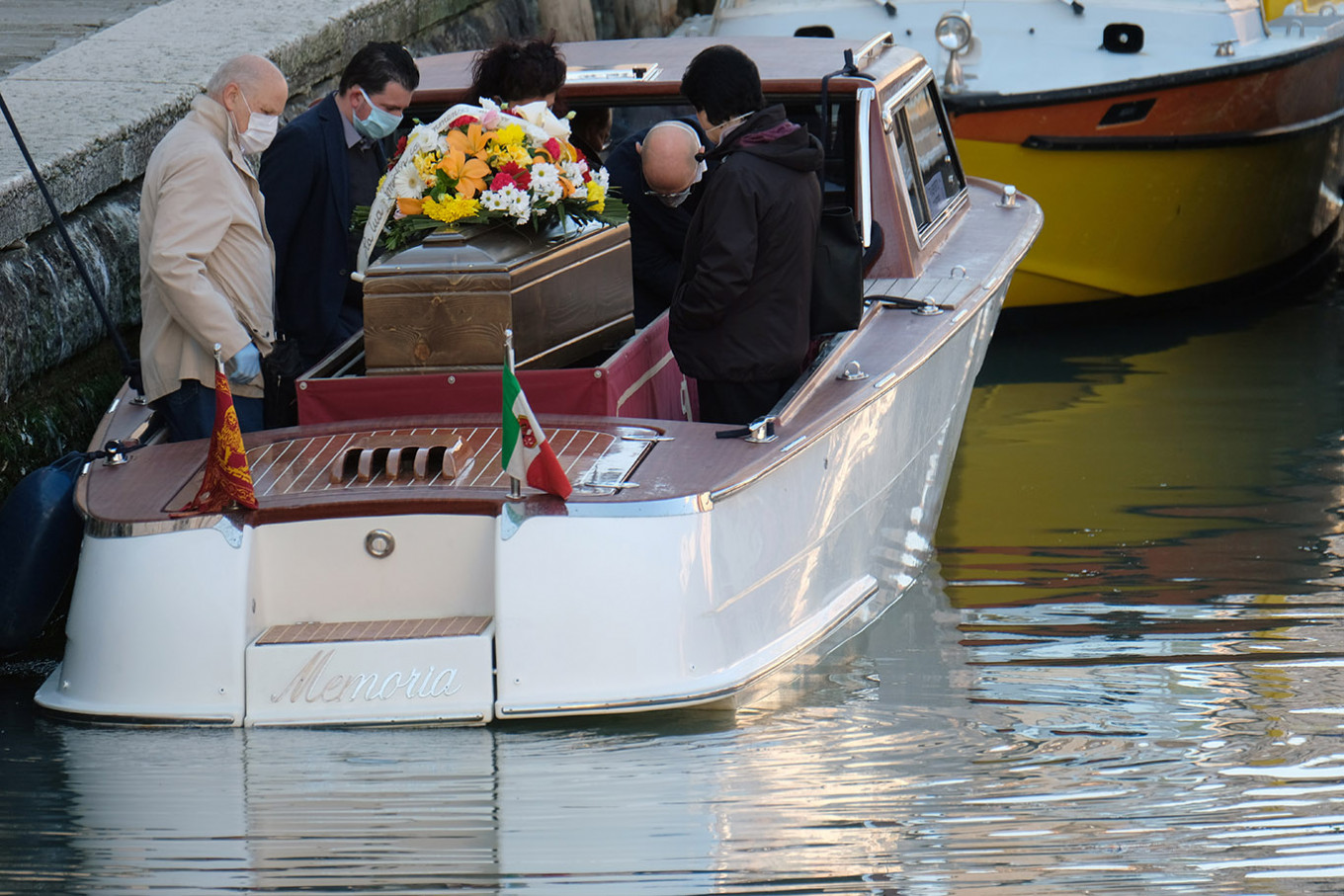Popular Reads
Top Results
Can't find what you're looking for?
View all search resultsPopular Reads
Top Results
Can't find what you're looking for?
View all search resultsFrom desolate Easter to desert
The sense of isolation experienced amid the COVID-19 pandemic is reminiscent of being in a desert and prompts Christians to ponder their connection with the Creator.
Change text size
Gift Premium Articles
to Anyone
A
s the Vatican has announced that this year’s Holy Week celebrations would be held without the presence of the faithful, most dioceses around the world offer online services. The decision, made in response to the COVID-19 pandemic, seems novel, even strange.
However, the situation can be connected back to the center of the religious experience and to what faith should really be. This sense of isolation is reminiscent of being in a desert, which speaks volumes on how to become a religious person and how to truly live our journey to God.
A desert is a place of abandonment. A state of desertedness, according to the Bible, is where demons thrive. There is no water in the desert, hence no life. The desert signifies death: Nothing grows in the desert.
The desert is also an inner sphere of desolation; it’s a place where we feel lonely either physically or socially, even in the presence of others. But those who experience such a state of abandonment will discern God’s will and confront it with human existence.
The state of desertedness, therefore, is a spiritual moment as well. From the third century until around the end of the fourth century, the desert of Egypt became the laboratory for early Christians to explore hidden truths about Heaven (God) and earth and draw a connection between the two. Of course, the desert was more than simply a place. It was a way of life that taught how to be an image of God.
Similarly, in some traditional communities in Lio, Flores, East Nusa Tenggara, for two or three days before nggua (customary festival and rituals), mosalaki (tribe leaders) must stay alone, separated from others just to identify intensively the wishes of Du’a Ngga’e (Supreme Being) and the ancestors in preparation for the festival and rituals to be held. There is no talk or contact with others during this time of seclusion referred to as pire (sacred days).
During these days, the ana kalo fai walu (tribespeople) must be silent as well, stay put and refrain from work outdoors.
Those traditional practices simply show that the most important thing in the moment of desertion is a personal relationship with God or Supreme Being. What matters is not lively liturgical celebrations or gatherings, a great Mass or beautiful ornaments in the church, but how we personally relate to God, even in the presence of others.
Thus, living in the desert does not mean living without people, but living for God. Observing the Holy Week at home does not mean celebrating without others; we revel the Holy Week only for God, who loves all creatures and cares for humanity. Solitude allows us to identify our profound humanity and to confront it with God’s will. This might be called the essence of religious life.
The religious life is not just about a church building or lively choir and music, nor about a priest, but about God who can be found and listened to in any situation and place, including the desert.
The COVID-19 pandemic is a blessing in disguise, as it directs all Christians to reform their religious life. It’s indeed a deadly plague, but it reminds the Christians as well to stop any excessive devotion to rituals (ritualism) and to struggle for the dignity of human personality; to move from clericalism to being a part of others; to be good shepherds who smell like sheep.
All these virtues can be actualized if and only if the Christians go on a pilgrimage in the misery of a desert. The Christians can learn from the Israelites, who had wandered in the desert for 40 years; or from Moses, who saw God in the desert, or from Jesus, who began His ministry and was first tempted by the devil in the desert.
Through the misery of the desert, Christians can reach Easter or, in other words, the Promised Land. Easter, as we know, begins in a night – a darkened church, the situation of abandonment that signifies the shadow of death. Now the world is under the shadow of death called COVID-19 that has plunged Christians and other believers into desolation.
But it is the place where Christians can find the true Easter and identify what faith is for.
Happy Easter.
***
Catholic priest, member of the Forum for Coastal Customary People (FORMAT-P) and social researcher for the Detukeli Research Centre in Flores, East Nusa Tenggara










